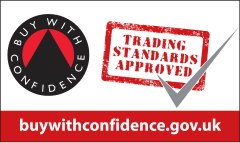In the latest of a series of occasional guest blogs written by Kieron Hayes, friend of Nicholas Hythe Kitchen Design Studio, he looks at the concept of ‘Community’ rather than ‘Corporate’ Social Responsibility and shows how small businesses can turn what they’re already doing into a way of helping grow their business.
It’s been around since the 60s and goes under a number of guises, but Corporate Social Responsibility has probably never had a more tarnished image than it has today. From Union Carbide, through Enron and all the way up to BP and the Bankers it’s done little to prevent a shoddy history of corporate irresponsibility that, in one way or another, we’ve all ended up paying for.
For the last decade I’ve talked to business owners about CSR, written reams of corporate literature that referenced it and seen the exponential growth of web pages on corporate sites dedicated to it. But almost without exception, from a small business perspective, it’s been off the radar or in the words of one business owner I met, “it’s got nothing to do with me, I’m not a corporate.”
I think that he’s wrong, however, and I see a real opportunity for small business owners in particular, to take ownership of the concept – with a slight tweak! In fact I think many of them are already doing it, even if they don’t think that they are.
So what’s the tweak? One word and a change of focus is the answer.
I think that SME owners need to start thinking in terms of Community Social Responsibility and understanding just how significant reputation is when it comes to the bottom line. After all, the reputational stock of big business is as low as a snake’s belly button at the moment. And what little trust the average Joe had in corporations has been gradually eroded over the lifetime of the CSR concept by a succession of business scandals, not to mention the unedifying conspicuous consumption of the ‘Feral Elite’.
I think that current consumer dissatisfaction with ‘big’ business is a fertile furrow for smaller firms to plough – and one that can make a real impact on the success or otherwise of any business venture. To truly appeal to today’s discerning consumer – who are often in possession of an acute environmental awareness – businesses should be actively seeking to promote their Community Social Responsibilities to customers at every opportunity.
And, of course, there are myriad ways in which they can achieve this. As with most business concepts one size certainly doesn’t fit all, so I think it’s crucial that SME owners give some real thought to how they get their CSR credentials across to existing and potential customers.
Some firms take a truly holistic approach to embedding their CSR awareness across all of their communications activities. Nicholas Hythe, a Kitchen Design Studio that I’ve been working with recently, is one firm that really gets the whole CSR thing. It realised at the outset that reputation and what its brand represented were crucial elements when it came to building customer trust and growing the business.
Take a look at the blog that Ross, the firm’s boss, recently published here: http://www.nicholashythe.co.uk/2011/07/15/the-invisible-cogs-in-delivering-our-promises/
As the blog acknowledges, there’s much to value in so-called Communities of Interest and it also clearly
recognises that in the commercial world no man is an island and every business is interdependent upon the companies that it collaborates with to achieve success, and customer satisfaction.
But it’s by no means the only way that the firm highlights its CSR credentials. Its website is packed with information about environmental policies, recycling opportunities, the ‘local’ focus of the company, and of course, plenty of testimonials from satisfied customers. Now I’m not suggesting that every company has the inclination, or indeed the time and resources, to communicate such a clearly defined set of CSR principles as a fundamental element of how it does business, but I would advise other SMEs to sit up and take notice.
Even incorporating one or two of the elements that Nicholas Hythe uses in its virtual and real world activities can help other businesses to strengthen the customer perception that ‘this is an outfit that I’d be happy to do business with.’
It’s simple stuff, but it’s the sort of stuff that will help other customers to make an informed choice about where they will spend their hard-earned cash. It puts a human face on the company. Like everyone else, I would prefer to deal with a real person rather than a faceless organisation, so I’d venture that this type of web presence can have a really positive impact on customer perceptions.
And they’re not alone, of course. I particularly like this page on the Purelybeds site: http://www.purelybeds.co.uk/about-us
It takes ‘personalisation’ to the nth degree and makes a virtue of the character behind the business. It
does a number of things to help win the trust of the customer. It’s obviously a family business, always a good selling point. The people behind it are clearly passionate about what they do, and given Mike’s Dad’s wide experience, knowledgeable as well. And finally, it does so with a sense of humour – even managing to make a ‘brand virtue’ out of a regional stereotype!
But let’s not be fooled into thinking this is only something you can do on the ‘corporate’ web. It would be ridiculous to overlook the significance of Social Media when it comes to communicating brand values and the firms I’ve mentioned above cleverly exploit the medium to their own business ends.
Through blogging, Twitter updates and facebook pages smart companies exploit every opportunity to get their message across and bolster what their brand and business methods are founded upon.
I’ve seen plenty of other small firms using facebook to do the same. A friend of mine who has his own computer repair business uses facebook almost exclusively to promote his services. He concentrates on the ‘personal’ service he provides throughout his facebook activities, highlighting the fact that he’s local, offering discounts to Students and OAPs and, of course, capitalising on the messages posted by satisfied customers on his profile. All of which, I would venture, contribute massively to the trust his customers place in him.
And let’s not forget the real world. I know a builder, for instance, that’s been in business for more than 14 years and always has a full appointments book. He does business purely on recommendation and in all of his years trading has never once had to advertise for business. He’s solid, trustworthy and flexible when it comes to giving the customer exactly what they want, and above all he’s a terrific guy who people warm to, something that should never be underestimated!
So how can you embed Community Social Responsibility into your activities? I think the 5 points below are a great starting point:
- Actively promote your CSR credentials – make it plain to customers that you’re committed
to doing what you do responsibly - Talk about real people – personalise your business and let your satisfied customers promote your business
- Be flexible – give the customer what they want and take account of the things they believe are important; customer-led change is having a profound impact on the retail landscape
- Get a local focus – highlight the fact that you contribute to the local economy. Where possible use local suppliers and try to be a good citizen
- Never underestimate environmental impact – socially conscious customers (who are often well-heeled to boot) are increasingly making choices based on minimising that impact.
Today’s customers really do care who they’re spending their money with and will make informed decisions about which company they want to do business with.
As my mother used to say, “there’s nothing new under the sun,” and I think it’s the same with Community Social Responsibility. Successful businesses have been quietly doing it for years without necessarily realising it. So if you want to increase your chances of success as a business, get with the Community Social Responsibility programme, but more importantly tell your customers about it – it might just be the clincher!
Read Kieron’s musings on Twitter @kieronah





